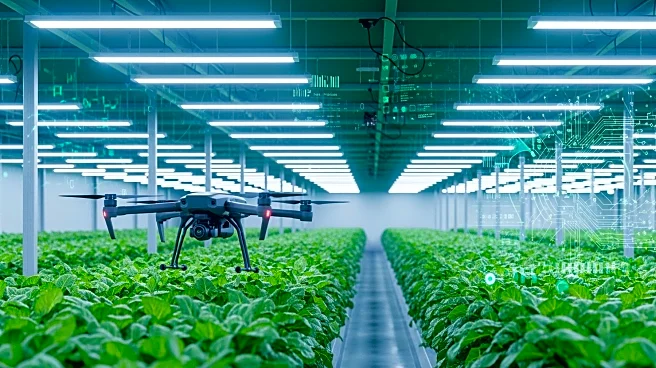What's Happening?
Uzbekistan's Deputy Minister of Agriculture, Kahramon Yuldashev, met with representatives from leading Chinese companies to discuss the integration of smart technologies into Uzbekistan's agricultural sector. The discussions focused on implementing AI-based
solutions throughout the cotton production cycle, from cultivation to processing. The meeting explored opportunities for creating pilot zones, attracting investment, and integrating foreign digital platforms with Uzbekistan's national information systems. The adoption of resource-saving technologies and automation using drones has already enhanced agricultural efficiency in Uzbekistan.
Why It's Important?
This collaboration between Uzbekistan and China signifies a significant step towards modernizing Uzbekistan's agricultural sector. By leveraging AI and smart farming technologies, Uzbekistan aims to increase productivity and efficiency, potentially transforming its agricultural landscape. The partnership could attract foreign investment and boost economic growth, positioning Uzbekistan as a leader in high-tech farming in the region. The integration of advanced technologies may also improve resource management and sustainability in agriculture.
What's Next?
Uzbekistan is likely to continue developing pilot projects and expanding its technological infrastructure in agriculture. The country may seek further investments and partnerships to enhance its capabilities in smart farming. As these technologies are implemented, Uzbekistan could experience increased agricultural output and efficiency, potentially leading to greater export opportunities. The collaboration with China may also pave the way for future technological exchanges and innovations in other sectors.
Beyond the Headlines
The move towards smart farming and AI in agriculture raises questions about the impact on traditional farming practices and rural communities. There may be challenges related to workforce adaptation and the need for training in new technologies. Additionally, the ethical implications of AI in agriculture, such as data privacy and security, could become areas of concern as these technologies are more widely adopted.

















